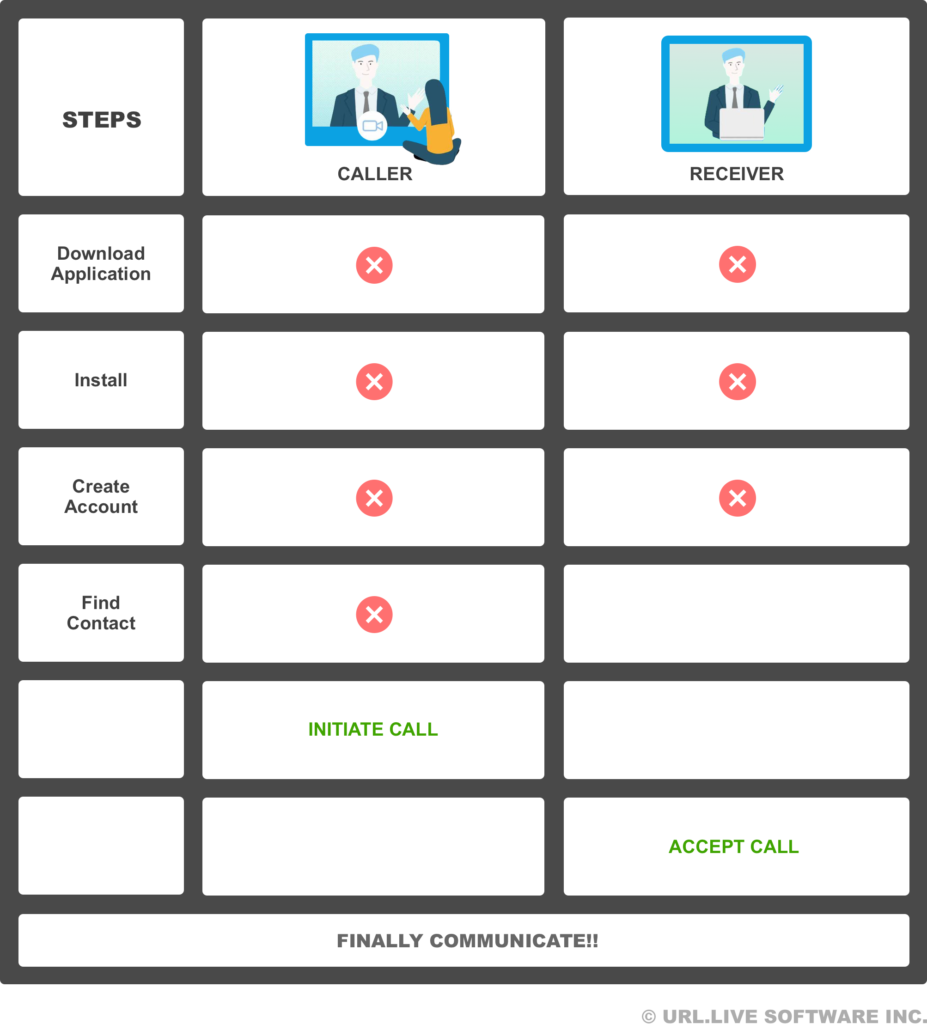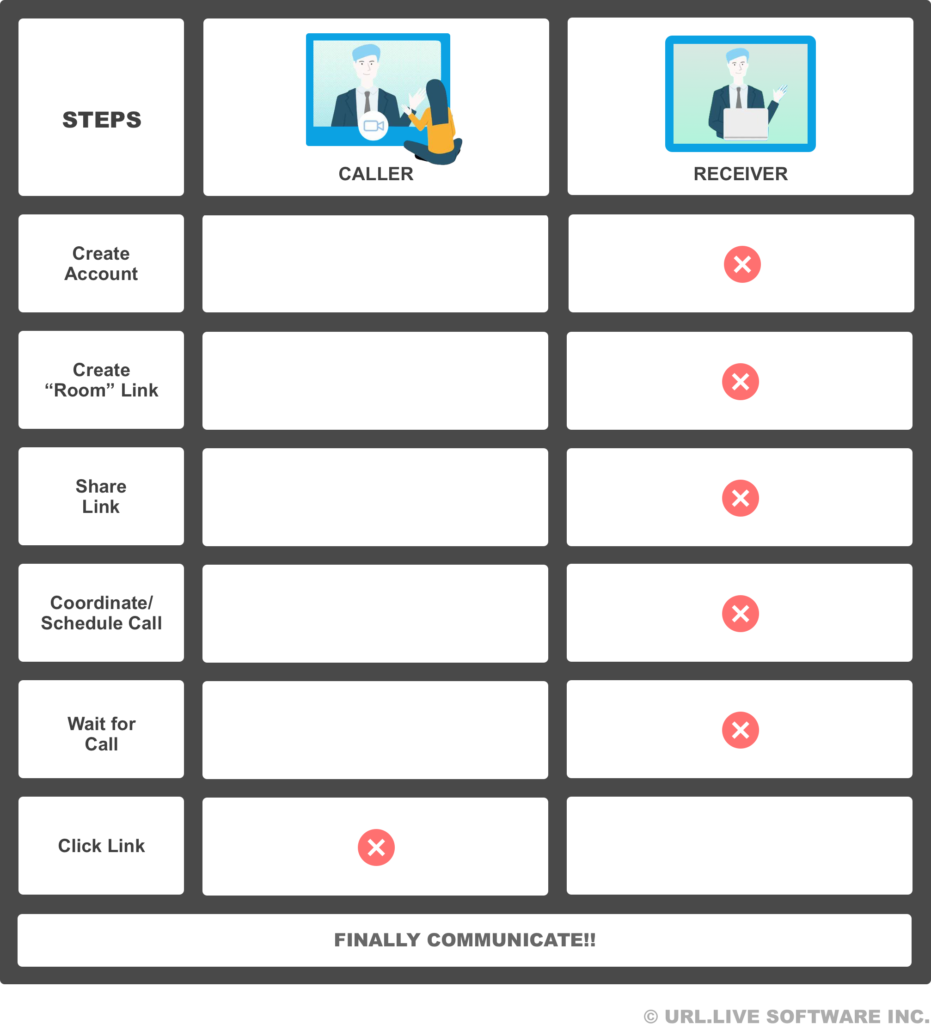What is Browser URL Calling?
How true one-click video chat is set to revolutionize online communication.
Browser URL Calling (BUC) is the next major evolution of digital communication and will remove a major barrier to delivering the services economy online. With just a single click, BUC enables users browsing websites to anonymously connect via video, audio or instant messaging with both people and businesses. It also finally answers the question: why can’t we communicate online with the same ease as we shop on Amazon, entertain via Netflix and bank through our web browsers? And, while services account for 65% of global GDP, why are fewer than 10% of these services delivered online? The magnitude of this missed opportunity is immense!
Generally, delivery of services requires direct communication with customers and the best way is often through face-to-face meetings. There is likely a degree of comfort gained from meeting a service provider directly, being able to shake their hand or to look them in the eye that accelerates the buying decision. When in-person meetings are not possible or too inconvenient, then video conferences can be almost as useful, followed by in decreasing effectiveness, telephone calls, instant text messaging and email.
Yet, communication tools like Skype, which permit video calls have been ubiquitous for over a decade so why aren’t more services delivered online? The answer is simply that we have been unable to overcome the complexity of setting up online calls using archaic software applications. Namely, the current methods available to customers to initiate online calls are too cumbersome, require too much coordination between participants or are too complex for most users.
Until the advent of Browser URL Calling, video communication technology was in its infancy and largely left its initial promise unrealized. Previous solutions inhibited both new customer engagement and the delivery of online customer service. To understand why, let’s briefly explore the two categories that the literally hundreds of available video chat services fall into:
Apps = Smoke Signals

Communication tools in this initial category (Skype, Zoom, Slack, etc.), require that both the caller and the recipient perform some initial configuration (download software, install software, create an account) before they can communicate. For many customers (i.e. novice technology users) this configuration is often too complex to complete. It is also extremely difficult to generate interest from new customers who may prefer to remain anonymous, at least during their initial or preliminary communication. Customers are appropriately wary of asymmetric information requirements, where a prospect feels exposed before they receive information or service from the counterpart with whom they have yet to establish trust.
Shared Hyperlink = Telegraph

These communication tools (Zoom in the browser, Appear.in, etc.) require that the call recipient (administrator) initially coordinate and prepare the chat room, and then share this specific chat room hyperlink via an email or text message. That is, prior to the call, the recipient must change devices and/or communication technologies just to configure the connection with the intended caller. This also presupposes that businesses know who their customers are, and precisely when these customers wish to speak to them so that they can prepare the communication tool! This cumbersome method and degree of coordination will not generate new leads. In addition, this limits options to collaborate with colleagues in the servicing of potential customers.
NEW! Browser URL Calling = Mobile Phones

This new Browser URL Calling category most closely resembles how companies traditionally provided customer service by telephone: a customer anonymously calls at their convenience and speaks to your customer service team during business hours. No coordination or preparation is required to receive these customer calls from your website; the simplicity of the telephone is finally achieved online!
By leveraging BUC, your prospects and customers can once again initiate calls at their convenience and can do so in an anonymous, pressure-free manner, directly from your website. This leads to immediately delighting customers enthused by your value proposition while they are visiting your website. No need to ask for email addresses or schedule call-backs which can reduce sales momentum; sales teams can now close while customers are emotionally “charged” and expressing interest. In addition, because customers know that they are anonymous until they choose to reveal their identity, prospects may be more likely to initiate a conversation and to buy because they feel in control.
These clear advantages have positioned Browser URL Calling, or one-click video chat, to revolutionize the online service economy!
In future posts we will explore the results that Browser URL Calling is delivering to online commerce: from increasing conversions of website visitors to establishing trust and credibility for Shopify sites and protecting the privacy of consumers selling online through market sites like Craigslist.
